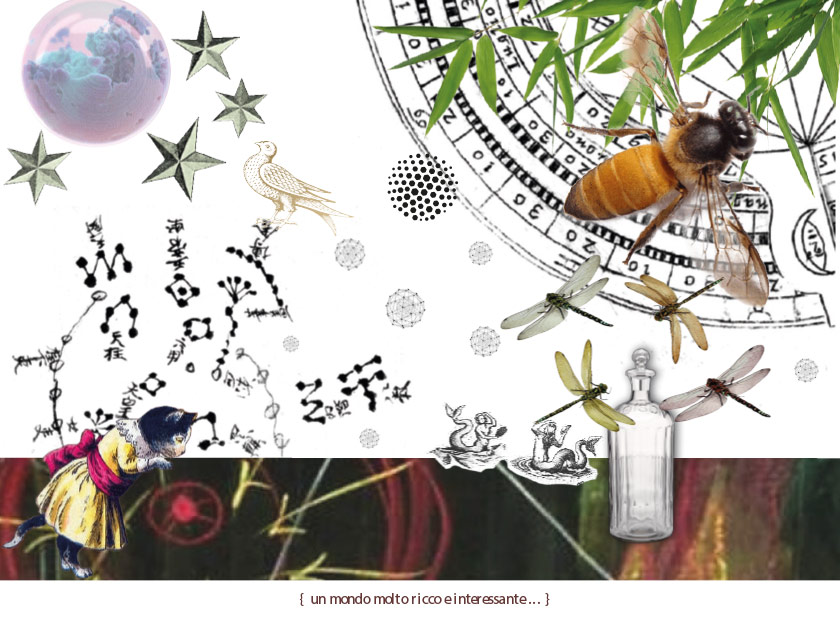
1924, Poland, Koberwitz Castle – Rudolph Steiner, PhD, who had turned sixty a few years before, held the course "Scientific-spiritual impulses for the progress of agriculture". It was a cycle of eight lectures on soil, fertility, and cosmic and spiritual forces. Far from being technically an agriculture course, it was the well-structured description of a vision, a fascinating – and modern – approach to agriculture. A holistic, global vision in which every element contributed to fertility. So, you could not merely hoe the soil – just simplifying – without considering the air, surrounding grounds, water, breeding, and seasons as well. A philosopher, theosophist, Grand Master Deputy of the Masonic Order, tireless lecturer and anthroposophist (the founder of anthroposophy), Steiner abhorred the scientific method in the strict sense of the word. According to him, this method was affected by materialism and greed and disregarded the spiritual dimension.
1927, Germany, Demeter was born – today Demeter International – the certification organisation of biodynamics that welcomed Steiner's theory and subsequent developments (a long and old story: Pfeiffer, Thun, and Podolinsky). Demeter does nothing but collects and verifies a series of procedures, rules and criteria that characterise biodynamic agriculture. The procedures and regulations range from the sowing calendar, crop rotations, fertilisers designed and manufactured adopting an eco-sustainability-centred approach, to the harvesting periods and methods. And they also deal with labelling, bottling and management – a complete, deep, radical control. [demeter.it]
Biodynamics regards earth, sky, water and living beings as a whole that lives on energy exchanges. Therefore, even the water for watering must be treated in a certain way (dynamised: through a specific procedure that gives energy to the water, whose power will be transferred to the soil). And what about fertilisers? Strictly organic and with striking denominations. The best known is the Cow Horn Manure or Preparation 500, which is manure stored in a cow’s horn – preferably a cow rather than a heifer – buried over a winter season and then diluted with dynamised water. Of course, also the preparations have their own rules in a system that involves method and material, as well as seasons, tides and cosmic interventions. Because every element matters, such as time, air, temperature, planetary configuration (sic!), people, insects and surrounding crops.
Nice, isn't it? I mean, we go crazy for the idea that we nourish what nourishes us, that if we nurture the earth and ourselves, then the earth gives us back care and love. And to be honest – given that the biodynamic certification is intrinsically organic – the philosophy according to which respecting food means respecting living beings, and everything moves harmoniously is beautiful, charming and lovely. And fascinating, too. After all, biodynamics offers natural processes and preparations, organic fertilisers, and time cycles that follow the rhythm of the seasons.
And planetary alignments.
And the cosmic memory of a cow's horn – preferably a cow rather than a heifer (i.e. the feminist issue in fertilisers, too).
We are not talking about moon phases and tides, and we are not just talking about seasonality. If anything, we are talking about erasing centuries of studies that have still helped feed people. Progress has helped humanity to survive. Acknowledging the damage caused by intensive agriculture and bringing everything back within a limit is one thing. Symbiotic Agriculture – symbiosis is a concept of biology – is a theme dear to our heart, but it also needs to be studied, verified and made thoroughly sustainable. And this means that it must be able to pay those who do it and those who use it and yield returns on the earth and man who needs it. To date, nothing has shown that the cow’s torn horn is different from the heifer’s. Then, what to say? I am a Scorpion. You know: we are sensitive to spiritual suggestions and, frankly, I somehow believe that if Saturn gets in the way, I will no longer live. And yet, I would not feel like ‘turning it into a law’.
Again: such doubts, which are expected, obvious, out of pure critical sense, do not justify witch hunts. And while it is true that nothing proves that cow horn manure is effective, everything shows that it is not harmful. And if there is a chance of survival on a planet where everything the man touches he dooms, experimentation does lie in looking at things in a clear-headed way, in studying and in science. So, the legislative controversy is not our place – we do something else. But we must interpret it accurately, and the much-discussed law basically says that for those parts where biodynamics is organic, it can be equated to organic – which means water is H2O. In a nutshell, it is pleonastic, redundant, perhaps a little ornate. But, as a whole, it is a healthy form of openness that comes in useful at least to deepen the topic. On the contrary, the much-paraded controversy, basically, makes us waste time (yes, it is pretextual), delaying the approval of a piece of legislation helpful to everyone – except for the aces of intensive agriculture. And here, sorry to say, our doubts are more than reasonable.
For the record: "[...] For the purposes of this law, the method of biodynamic agriculture, [...] applied in compliance with the provisions of the European Union regulations on organic farming, is equated to the method of organic farming."
Image by: collage _ credits @ali_lu






